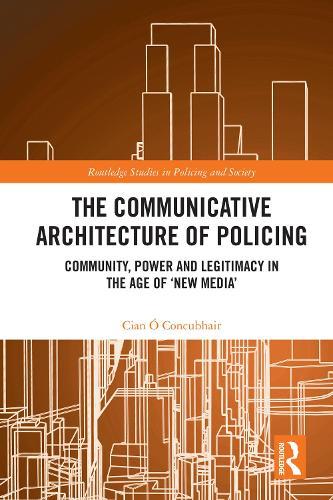Overview
The Communicative Architecture of Policing is a ground-breaking study of police communications and police–media relations in the social media era. It is based on nearly a decade of research on police–media relations, including two years of extended observational study in local newsrooms and police communications departments, and dozens of interviews with police communicators, chief police officers and journalists. This book is the first to undertake a deep ethnography of both police communications and local news media in a single policing area. It also provides an innovative theoretical reappraisal of the mechanics of police–media power relations, grounded in ideas of legitimacy, mass communications and local governing power. The book describes the lived experiences of journalists through the collapse of the local news media in England: declines wrought in large part by the advent of social media. It also describes a crisis of confidence in local journalism and its perceived institutional status in the local community. By contrast, the book charts the emergence of an empowered, professional police communicator class in policing––and its distinctive cultural features––rooted in the mass communications potential of social media. The book weaves together these empirical insights by developing novel approaches to police legitimacy theory and institutional power relations. This book will be of interest to students, scholars and practitioners in the fields of criminology, media studies, communication studies, journalism and policing.
Full Product Details
Author: Cian Ó Concubhair
Publisher: Taylor & Francis Ltd
Imprint: Routledge
Weight: 0.453kg
ISBN: 9781032695679
ISBN 10: 1032695676
Pages: 270
Publication Date: 05 August 2025
Audience:
College/higher education
,
Tertiary & Higher Education
Format: Hardback
Publisher's Status: Forthcoming
Availability: Not yet available

This item is yet to be released. You can pre-order this item and we will dispatch it to you upon its release.
Reviews
Modern police and media have been locked in brittle co-dependency since their early nineteenth century development. Each contributed to the other’s legitimation and consolidation into key agents of the hegemony of capitalist states. This important book adds a lot to our understanding of the recent intensifying travails of both institutions. It is based on meticulous and insightful empirical research, mainly observational ethnography of local media and police communication departments in several forces. This forms the basis of a sophisticated theorisation of the local communications field. The book is an illuminating and valuable study of two key institutions struggling in the face of massive transformation in political economy and the means of communication notably the digital revolution and emergence of social media. It is vital reading for researchers, students, practitioners and policy makers. Robert Reiner, Emeritus Professor of Criminology, London School of Economics Relationships with the media are central to the dialogues through which police legitimacy is established, reproduced, and, equally, undermined. In this important and timely book, Cian Ó Concubhair examines police-media relations through a fine-tuned ethnographic lens. Rich description and analysis reveals the relational dynamics of power, operating in embedded social contexts, that function to establish the position of both institutions within contemporary society. Ben Bradford, Professor of Global City Policing, University College London
Author Information
Cian Ó Concubhair is Assistant Professor of Criminal Justice at Maynooth University’s School of Law & Criminology. Cian researches across criminal law, policing and media, with a particular focus on police legitimacy, police– media relations and the politics of criminal justice.




